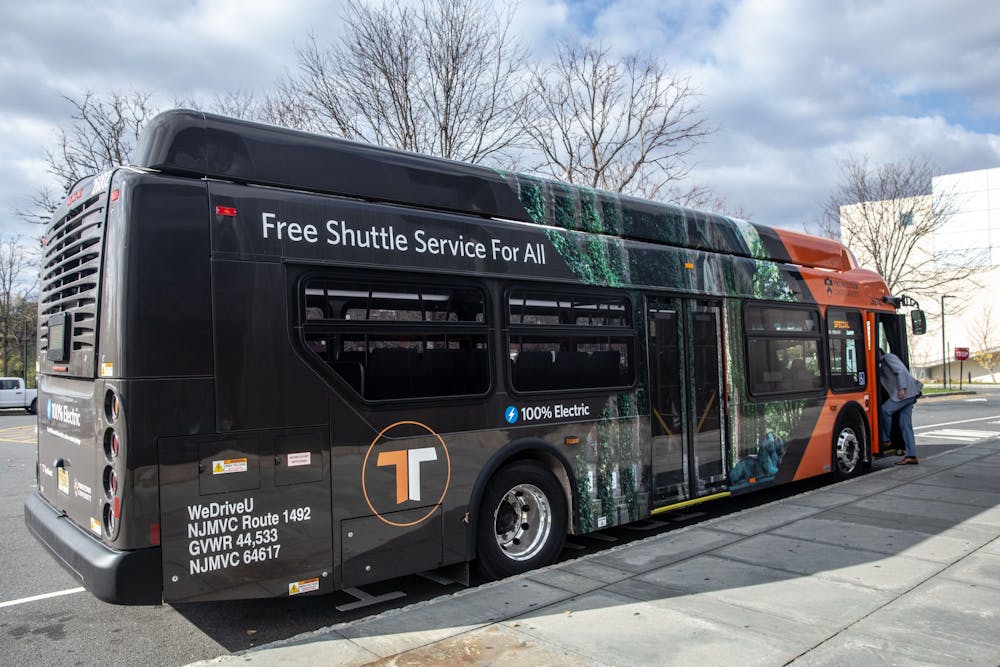In a University presentation to the Princeton Town Council on campus mobility, buses and bikes got prime placement, while cars and scooters both received significant blows. Public and sustainable transportation fit with town priorities, in a contrast to Princeton’s traditional car-centric suburban environment.
Kristin Appelget, the Assistant Vice President of Community and Regional Affairs, and Charles Tennyson, the Director of Transportation and Parking Services, represented the University in its presentation to the Council.
The two reviewed recent upgrades to the TigerTransit bus system, which included new routes that went into effect on Jan. 30 and a new fleet of 17 electric buses. Tennyson said that the University’s fleet should be fully electric by this summer. There are also plans to implement screens with real-time bus arrival information to about a half-dozen stops this semester.
“When this work’s completed, the University will be among the very few operations in the country with a fully electric fleet,” Tennyson said.
Additionally, Tennyson went over plans to expand biking accessibility on campus, including a new electric bikeshare program. Tennyson says the University has not selected a company yet, nor is there a clear launch date, but the program will be another option to the current non-electric bikeshare program. There are no plans to add a scooter rideshare system, according to Tennyson.
“The nice thing about [a] share [system] is that we can control it,” Tennyson said, alluding to a default cap that would limit the top speed at which the bikes can operate and restrictions on where they can be used.
Furthermore, a reconstructed Ivy Lane will include advisory bike lanes when the Environmental Studies and School of Engineering and Applied Sciences complex is completed. There will also be an all-way walk crossing at the intersection of Washington Road and Ivy Lane, near Fine Hall, similar to the crossing at Washington Road and Nassau Street.
Scooters, which have been linked to safety concerns, were further regulated. Even though scooters fit with public mobility, the University Students will have to register their scooters when they come back in the fall, with reminders of where they can and cannot use them. The town recently banned scooters in certain areas, which include portions of Witherspoon Street, Nassau Street, and Palmer Square. Scooters remain a common mode of transportation on campus.

Another transit-related change came during the Council’s Jan. 23 meeting, during which the Council unanimously voted to reduce the speed limit on the entirety of Witherspoon Street to 20 mph.
While voting “yes,” Councilmember David Cohen added, “I hope this is the first of a number of streets that get identified for the 20-mile-per-hour speed limit.”
The Feb. 13 meeting can be viewed here. The next Council meeting will be held on Feb. 17.
Charlie Roth is a Head Data Editor and staff news writer for the ‘Prince,’ focusing on local politics coverage.

Please direct any correction requests to corrections[at]dailyprincetonian.com.








